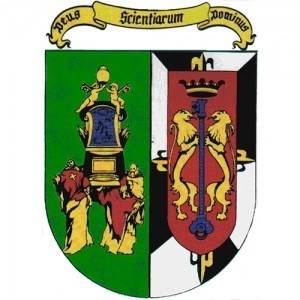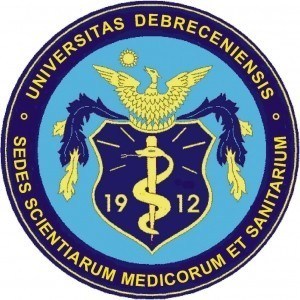Photos of university / #ucsdrd
The Bachelor of Science in Nanotechnology at the Catholic University of Santo Domingo is a comprehensive undergraduate program designed to provide students with a solid foundation in the principles and applications of nanoscience and nanotechnology. This multidisciplinary degree integrates fundamental concepts from physics, chemistry, biology, and engineering to prepare graduates for cutting-edge careers in research, development, and industry sectors focusing on nanomaterials, nanodevices, and nanoscale fabrication techniques. Throughout the program, students engage in both theoretical coursework and practical laboratory training, fostering hands-on skills essential for innovation in areas such as electronics, medicine, environmental science, and materials engineering. The curriculum emphasizes the development of analytical thinking, problem-solving abilities, and technical expertise, enabling graduates to contribute to advancements in nanotechnology research and commercial applications. Additionally, students benefit from collaboration with faculty members active in scientific research, participating in projects that address real-world challenges and emerging technologies. The program also offers opportunities for internships and industry partnerships, enhancing employability and practical understanding of the nanotechnology field. Graduates of this program are equipped to pursue advanced studies or professional careers in academia, industry, governmental agencies, and private research institutions. As nanotechnology continues to evolve rapidly, this degree aims to produce proficient professionals who can innovate responsibly and ethically, advancing scientific knowledge while addressing societal needs. The Catholic University of Santo Domingo is committed to delivering a high-quality educational experience that combines theoretical knowledge, practical skills, and ethical considerations, preparing students to become leaders in the dynamic world of nanotechnology.
The Bachelor of Science in Nanoengineering at the Catholic University of Santo Domingo offers a comprehensive and innovative curriculum designed to prepare students for the rapidly evolving field of nanotechnology. This program integrates fundamental principles of engineering, physics, chemistry, and materials science, providing students with the knowledge and skills necessary to develop and apply nanoscale technologies across various industries. Throughout the program, students will engage in rigorous coursework that covers the basics of nanomaterials, nanoelectronics, nanofabrication techniques, and nanobiotechnology, ensuring a well-rounded understanding of both theoretical concepts and practical applications.
The curriculum emphasizes hands-on laboratory experiences, encouraging students to participate in research projects and internships that foster critical thinking and problem-solving abilities. Students will learn advanced characterization methods such as electron microscopy, atomic force microscopy, and spectroscopy to analyze nanostructures and understand their properties. Special elective courses allow specialization in areas like energy nanotechnology, nanomedicine, or environmental nanotechnology, aligning academic pursuits with emerging industry needs.
The program also focuses on developing skills in project management, innovation, and entrepreneurship, preparing graduates for careers in research and development, manufacturing, and academia. Collaboration with industry partners and participation in scientific conferences provide valuable networking opportunities and exposure to cutting-edge advancements. Graduates of the Nanoengineering program will be equipped to contribute to technological breakthroughs that address global challenges in health, energy, and sustainability. By fostering an environment of scientific inquiry and innovation, the Catholic University of Santo Domingo aims to cultivate leaders who will drive the future of nanotechnology.
The Bachelor's Degree in Nanoengineering at the Catholic University of Santo Domingo requires students to complete a comprehensive curriculum designed to provide a strong foundation in both fundamental sciences and engineering principles. The program begins with prerequisite coursework in mathematics, physics, and chemistry to establish essential scientific understanding. This foundational knowledge is complemented by courses in materials science, nanofabrication techniques, and characterization methods, preparing students to work at the atomic and molecular scale. Students are also required to undertake advanced subjects such as nanoelectronics, nanomaterials, and surface engineering, emphasizing the multidisciplinary nature of the field.
Throughout the program, practical laboratory experience is emphasized to develop hands-on skills in nanoscale fabrication and analysis. Students participate in laboratory projects, research activities, and internships to gain real-world insights and industry-relevant competencies. Additionally, the curriculum incorporates courses in computer-aided design, simulation, and modeling to enable students to design and analyze nano-scale systems effectively.
The program also includes coursework in ethics, safety, and environmental considerations pertinent to nanotechnology, ensuring graduates are responsible practitioners. To culminate their studies, students must complete a capstone project or thesis, demonstrating their ability to conduct independent research and solve complex problems in nanoengineering. To be eligible for graduation, students must accumulate a specified number of academic credits, maintain a minimum grade point average, and successfully complete all practical and theoretical assessments.
Overall, the program aims to produce graduates equipped with the technical expertise and innovative mindset necessary to advance in fields such as electronics, medicine, energy, and materials development, contributing to technological innovation and economic development.
The Catholic University of Santo Domingo offers a comprehensive financing structure for students enrolled in the Nanoengineering degree program. Tuition fees are established annually and are accessible through the university’s administrative offices and official website. The university provides a variety of payment options, including full payment discounts, installment plans, and financial aid packages to assist students in managing their educational expenses. Financial aid opportunities are available for qualifying students, which may include scholarships, grants, and work-study programs designed to reduce the financial burden and promote equitable access to quality education. The university collaborates with various financial institutions to facilitate student loans, offering attractive interest rates and flexible repayment terms tailored to students' needs. Additionally, the university encourages students to explore external scholarship sources from government agencies, private foundations, and international organizations that support engineering and innovative technological fields. The selection process for internal scholarships typically involves academic merit, financial need, and extracurricular activities, and students are advised to submit the necessary documentation by specified deadlines. The university also offers counseling services to guide prospective and current students through the financing process, including information on budgeting, financial planning, and the application procedures for financial aid programs. Overall, the Catholic University of Santo Domingo is committed to making Nanoengineering education accessible through diverse financing options that aim to support students academically and financially, ensuring their successful completion of the program without undue economic hardship.
The Nanoengineering program at the Catholic University of Santo Domingo is a specialized undergraduate degree designed to prepare students for cutting-edge careers in the field of nanotechnology and nanoscience. This program combines fundamental disciplines such as physics, chemistry, biology, and engineering to develop a comprehensive understanding of the manipulation and application of materials at the nanoscale. The curriculum emphasizes both theoretical knowledge and practical skills, enabling graduates to engage in innovative research, product development, and technological advancements within various industries, including electronics, healthcare, energy, and materials science. Students are exposed to advanced laboratory techniques, including microscopy, materials synthesis, and characterization, ensuring they gain hands-on experience with state-of-the-art equipment. The program also covers topics such as nanofabrication, nanoelectronics, nanomaterials, and devices, as well as ethical and safety considerations related to nanotechnology. Faculty members are experts in their respective fields, often involved in pioneering research projects that provide students with opportunities to participate in real-world scientific inquiry. The Catholic University of Santo Domingo's emphasis on research and innovation fosters a dynamic learning environment where students can collaborate across disciplines. Upon completion, graduates are equipped to pursue postgraduate studies or enter the workforce as professionals capable of contributing to technological solutions addressing contemporary challenges. The program aims to cultivate a new generation of scientists and engineers who are proficient in the latest nanotechnologies and committed to advancing sustainable and ethical practices in science and industry.










